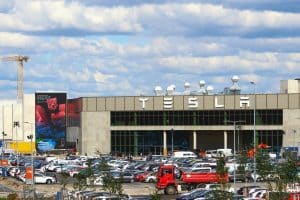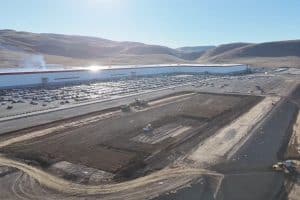Elon Musk will head to trial this week in Wilmington, Delaware, to take the stand in a case regarding his $56 billion Tesla pay package. A Tesla shareholder claims the the pay package was set up with easy performance targets that Musk could easily accomplish, and shareholders were misled into approving it.
Tesla shareholder Richard Tornetta is hoping the five-day trial in Wilmington will result in the court rescinding the pay package. Tornetta wants to prove that Musk used his dominance over Tesla’s board to dictate the terms of his bonus package.
The lawsuit argues that the terms of the pay package should have required the CEO to work at Tesla full-time, which was not a requirement. However, 2018 coverage of Tesla’s struggles to ramp up production of the Model 3 and stay afloat financially uncovered that the CEO was sleeping in the company’s Fremont Factory.
“The reason I slept on the floor was not because I couldn’t go across the road and be at a hotel. It was because I wanted my circumstances to be worse than anyone else at the company. Whenever they felt pain, I wanted mine to be worse,” he said in an interview with Bloomberg that year.
Musk and several Tesla directors, including Ira Ehrenpreis, a director since 2007, are also defendants in the case and argue the pay package was designed for the CEO to guide the automaker through persistent growth through sizeable monetary pay bonuses. The 2018 pay package catalyzed a ten-fold growth in Tesla’s valuation, making it a trillion-dollar company at one point.
Tesla experienced growth fiscally and through manufacturing, as its annual production capacity has multiplied by nearly eight times since then. Tesla delivered 245,240 vehicles in 2018, while its current production capacity sits at 1.9 million vehicles every year. According to analysts, Tesla is projected to deliver between 1.3 million and 1.7 million vehicles this year.
Musk is expected to be in court as soon as Tuesday, Reuters reported. Interestingly, the Tesla CEO will sit in front of Chancellor Kathaleen McCormick of the Delaware Court of Chancery, who also oversaw Musk’s $44 billion Twitter acquisition case last month.
Legal experts believe Musk is in a better position in this case than the Twitter acquisition lawsuit. Company boards have relatively no restrictions on what they can do to set executive compensation. However, pay packages must meet tougher legal terms when they involve a controlling shareholder. Musk owned 21.9 percent of Tesla at the time the pay package was approved.
The package allows Musk to buy 1 percent of Tesla’s stock at a discount each time performance and financial targets are met. Tesla hit 11 of the 12 targets, increasing in value monumentally from $50 billion to $1 trillion.





